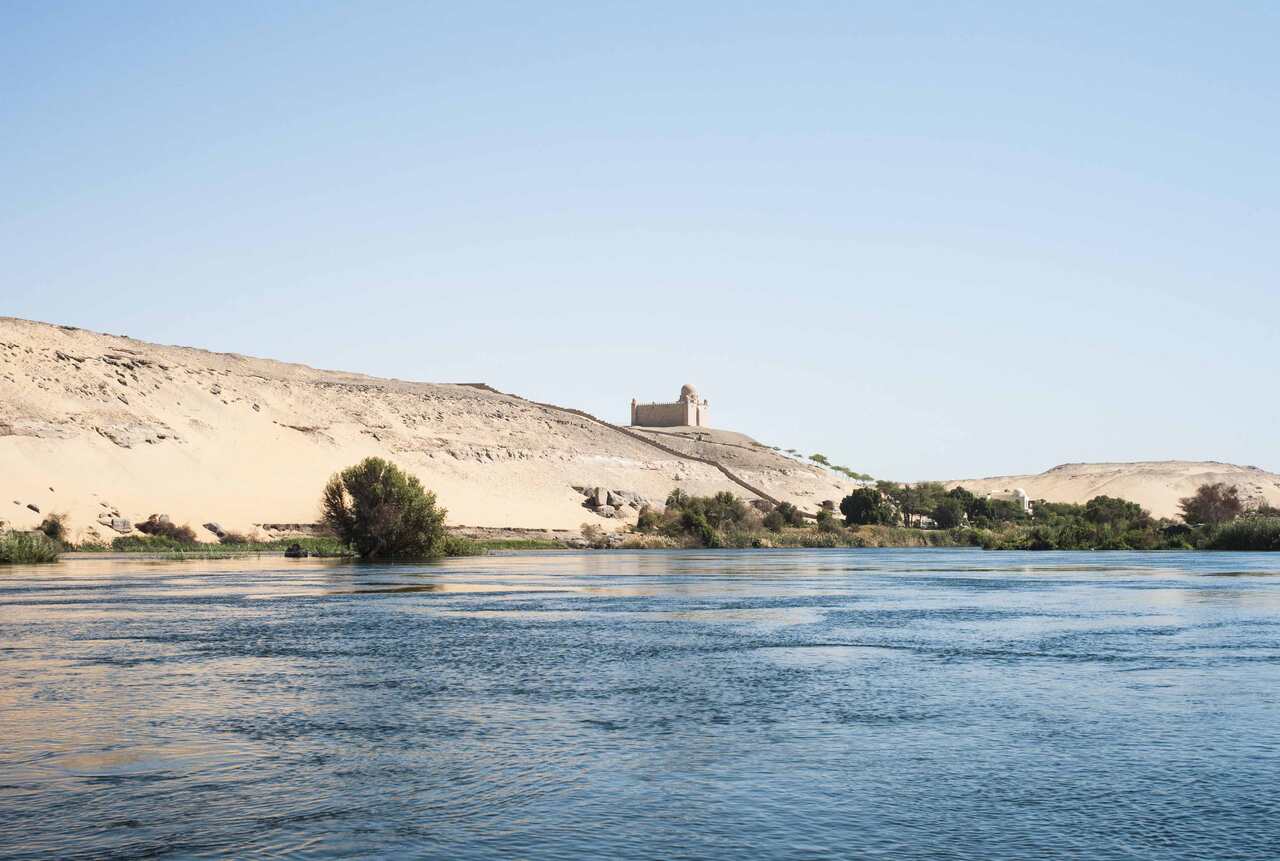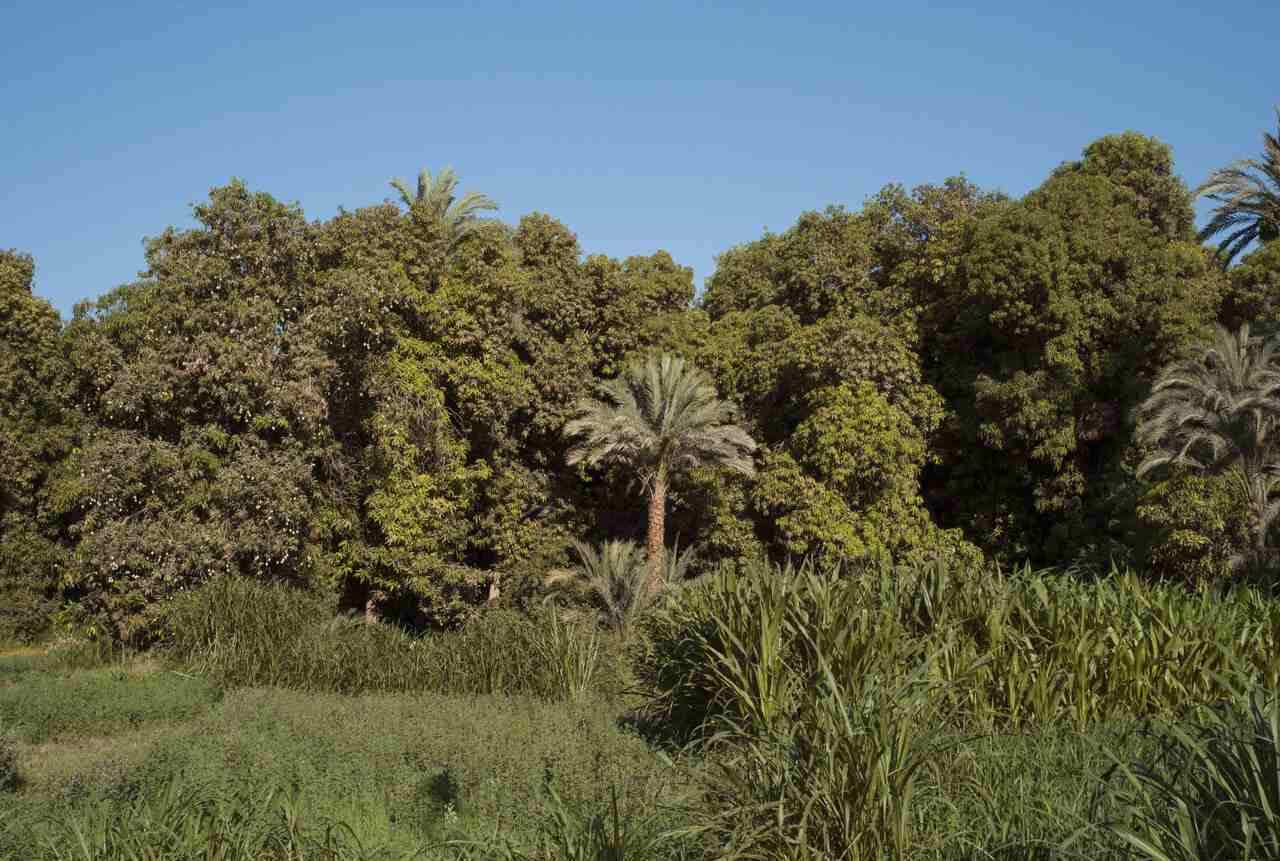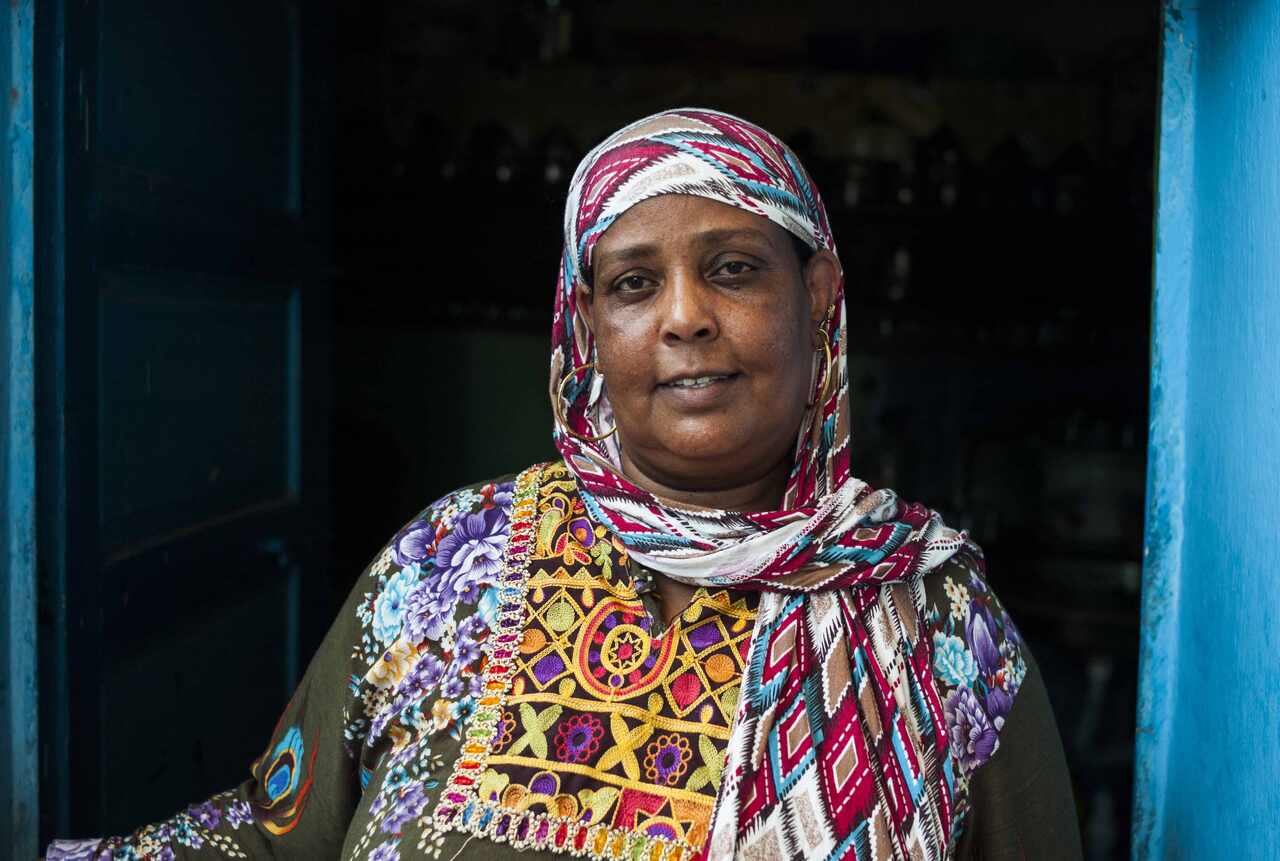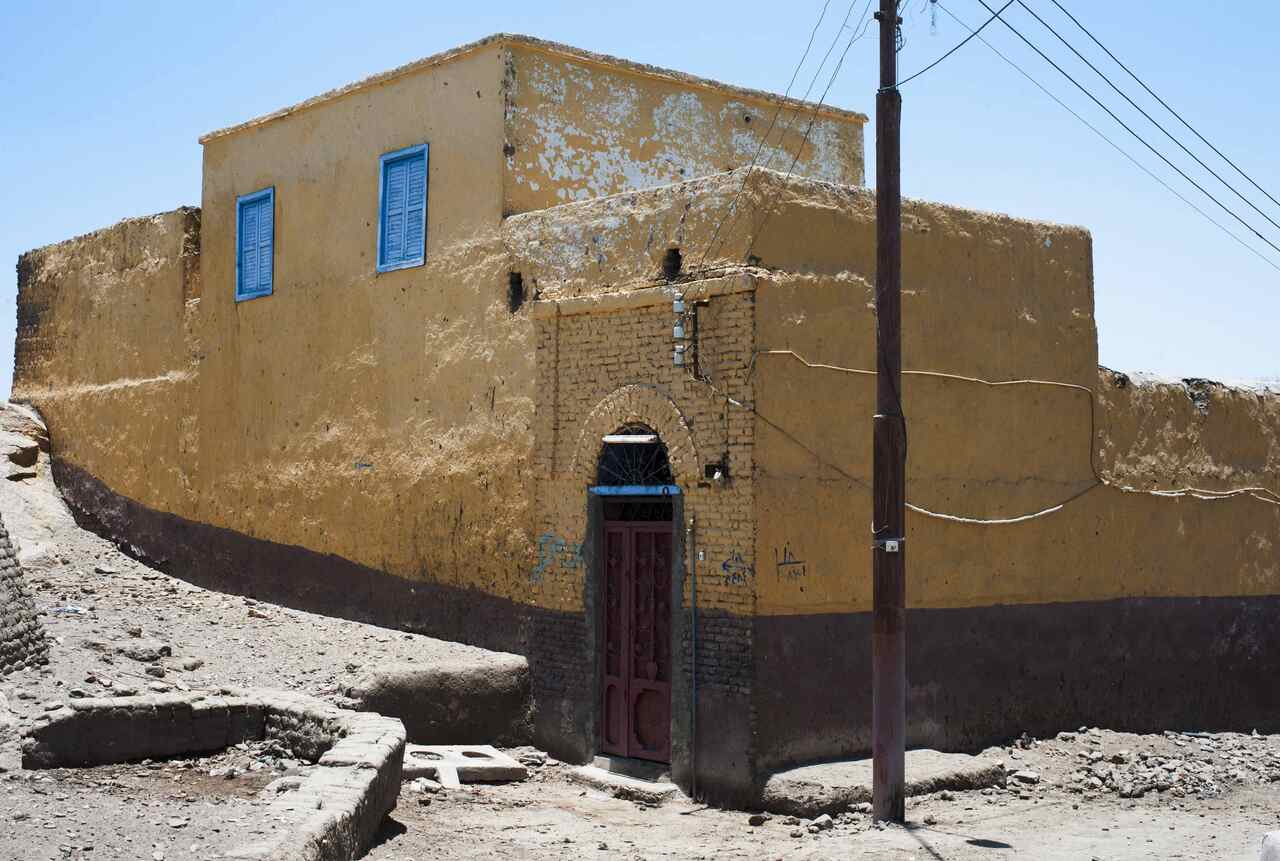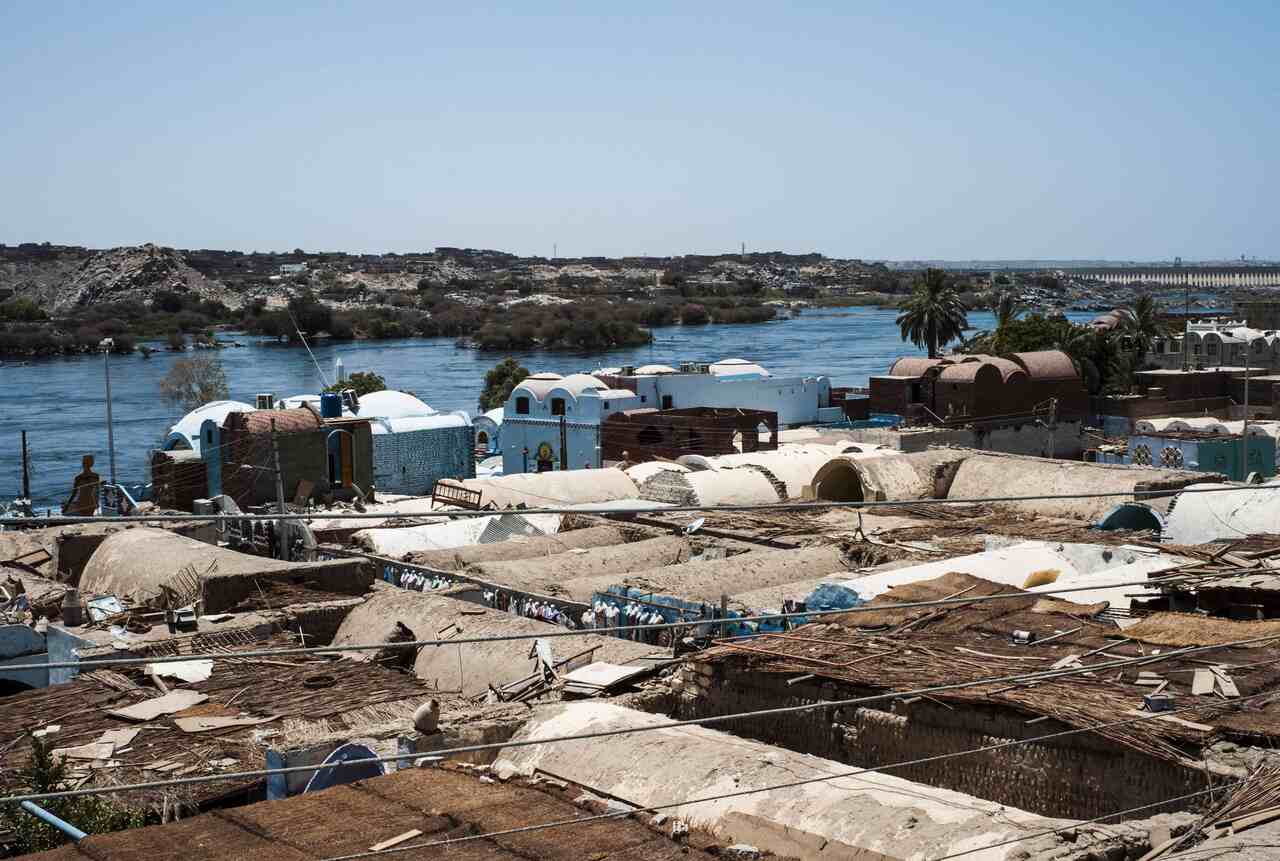
The Nubians are one of the oldest civilizations in the world, having lived alongside the Nile River in what is now Southern Egypt and Northern Sudan for thousands of years. The origin of the name Nubia is obscure. Some argue that the name “Nubians” derives from a word in the Nubian language meaning “slaves,” but others say that the ancient Egyptian word nab meant “gold” and that the Ancient Egyptians used that term to refer to the Nubian Valley because of the gold mines that were nearby. Another source mentions that the word nebed appeared in an inscription of Thotmes I (1450 b.c.) to designate people with curly hair who were invaded by the Pharoe.
Nubians are descended from an ancient African civilization that ruled over an empire stretching, at its height, across the north-east corner of the continent. Most Nubians lived along the Nile river in what is now southern Egypt and northern Sudan—a region often referred to as Nubia. Christianity came in the 4th century and then most Nubians converted to Islam in the 15th and 16th centuries, as Arab powers dominated and split up the region. It was reunited under Ottoman-Egyptian control in the 19th century. When Sudan seceded from Egypt in 1956, the Nubian community was split between the two countries.
Despite efforts to save Nubian monuments, such as the temples of Abu Simbel, much of this rich history was washed away when British and Egyptian authorities constructed a series of dams, beginning in 1898. The Aswan high dam, which was completed in 1970, left most of Nubia under the reservoir called Lake Nasser and forced tens of thousands of Nubians to relocate. Many were moved to Kom Ombo, about 50km north of Aswan and some 25km away from the Nile. Villagers complain of crumbling government-built houses, inadequate compensation and their distance from the river.
The Nubian community, both in Sudan and Egypt, barely reproduced itself prior to resettlement. At a time when the larger society was experiencing an annual population increase ranging from 2.5 to 3.0 percent, Nubia was experiencing a population decline. An imbalance existed in the sex ratio, especially in the middle-range age. Such an imbalance further led to natural decrease in the population. Among the Egyptian Nubians this population pattern was maintained after relocation. Among the Sudanese Nubians, population has increased since relocation. Many emigrants came back after relocation to settle, because the land acreage they were granted by the government was generous. Today the Sudanese Nubians have almost doubled their population in certain villages and have even tripled their population in New Wadi Haifa.
The ancient Nubians were also well known for their archery skills, and the Egyptians sometimes called their land “Ta-Seti,” which means “land of the bow.” Nubian rulers, including the female rulers, were often buried with archery equipment, such as stone rings designed to make it easier to fire off arrows.
Agriculture was and still is the basis of the Nubian economy. The scarcity of cultivable land was an outstanding feature of old Nubia. As a result, men migrated to cities to find work, and women were left to do the agricultural work. The Nubians in Egypt had two cultivation
seasons, winter crops, shitwi, and summer crops, sifi. The Nubians in Wadi Haifa had, in addition, the flood cultivation, dameira. The Nubians depended on the rise and fall of the Nile water to irrigate winter crops.
Nubians imported gold, incense, ebony, copper, ivory, and exotic animals from tropical Africa through Nubia. The gold mines of Nubia were worked by convicted prisoners, prisoners of war and slaves. Trading was eventually replaced by the colonization of Nubia and direct military control.
Cross-cousin marriage is the preferred marriage type. Intermarriage among the various Nubian groups was and is still rare. Only women are bound by endogamous marriage rules. A dowry is exchanged as a sign of public declaration of marriage. The dowry then becomes the possession of the bride, and it may not be returned even if the marriage is not consummated. The age of marriage among the Nubians after relocation has risen because of economic conditions and the legal establishment of a minimum marital age. Divorce is frowned upon by tradition, and the demographics as well as the marriage rule of (Egyptian) Nubians leaves divorced women scant opportunity for remarriage.
The Nubians in some cases follow the Sunni Islamic rules of inheritance, which grant males double the share of the females. This share is passed on both from the father and the mother, if there is a male heir. In cases of land, however, such rules do not hold true.
